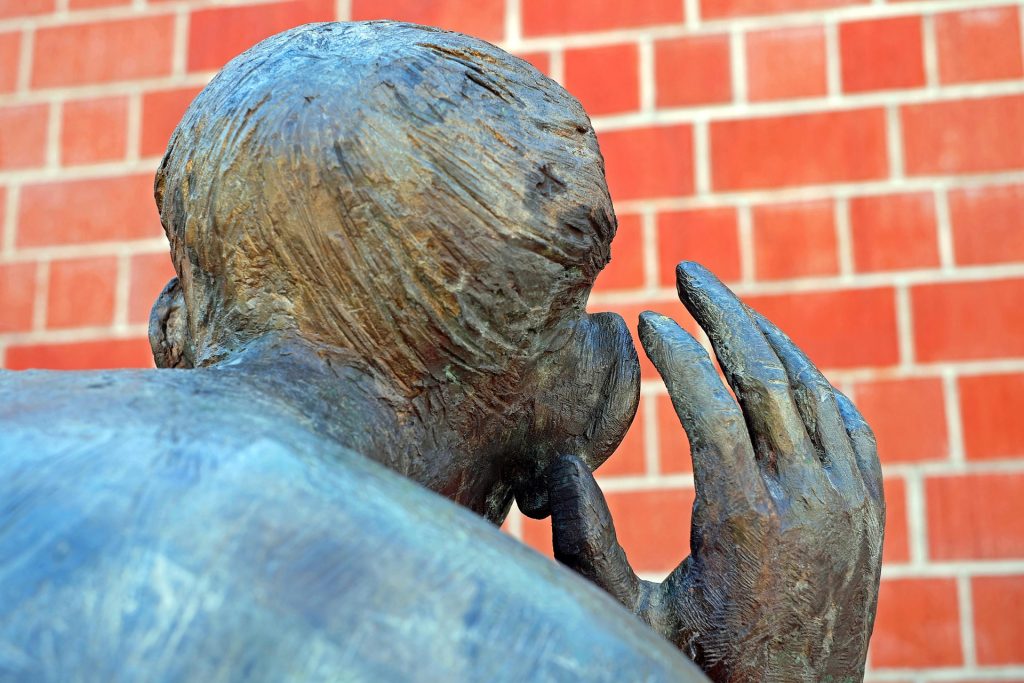“Health is not merely the absence of disease, but a state of complete physical, mental, social, and even spiritual well-being.” This is the definition of HEALTH according to the WHO (World Health Organization).
Fully aligned with this perspective thanks to my professional background, over the years I have gathered notes from true stories, while always preserving the privacy and confidentiality of the many patients I have seen.
The following story is part of a collection that is soon to be published in a book.
80-YEAR-OLD MAN WITH LUMBAR BLOCKAGE
Shuffling, almost stumbling, supported by a cane and his trembling right hand, a thin man in his eighties approached me in the waiting area outside the office. I invited him in. He began:
“Doctor, I’m here for my wife. She needs medication to sleep. You see, I’m a retired professor. I taught in classical high schools for fifty years. My wife also taught literature in scientific high schools. Sure, I have my own issues, but I’m here for her.”
“A humanist who needs psychiatric drugs. And what about Dostoevsky’s quote that art and literature will save the world?” I felt like replying.
“Doctor, when you reach eighty and wake up at two or three in the morning… all the dark thoughts in the world come to mind. You see your father, your mother, your grandparents again. You see their deaths, and you know it’s your turn now, and that any day could be the day. And fear sets in. My children tell me: ‘Dad, write!’ But what should I write? Truth be told, at sixty I published a book of poems, and one of my best ones read: ‘I dread the falling leaves of autumn.’ Which meant the fear that my last energies were fading. The Betrothed? Yes, but Manzoni is dead. Leopardi? Yes, but he’s dead too! Humans are on earth like other living beings that devour each other. Animals eat one another, we eat fish, even plants die in winter and resurrect in spring. They have a sky until their sky ends. And in the Universe, we are something utterly minute, insignificant. The only answer is faith.” He ended his long monologue.
“But writing,” I pressed on, trying to lift his mood, “is a form of faith, a psychological need to communicate, a spiritual need — it allows us to touch the infinite… After all, the doctor’s work should serve this purpose: to bring awareness of our soul through illness. And with that awareness, help to heal.”
I prescribed mild medication for his wife’s insomnia and referred him to her family doctor for more complex treatments, as I didn’t know her personally.
“Doctors today are just technicians. Once upon a time, the old family doctor would come to your home, sit at the table, have a coffee, and talk.” He then told me about his “ankylosing spondylitis”, which no one had been able to explain to him “because it’s a very rare disease. My spine is one solid block.” I felt human sympathy for him. I walked him to the door. No more patients were waiting.
“Could your spondylitis be the child of your materialistic and anxious worldview?!”
I asked. Like a lightning bolt that struck close — but didn’t harm.
“Doctor, I can’t argue with that. I was self-taught, I educated myself, I didn’t have good mentors. I used to give my students the chance to ask open questions about the topic of the day. But every day was an exam of life for me. I had to take twenty drops of tranquilizer before entering the classroom.”
“That’s the inner block, the spondylitis…” I replied.
“I was already bald, but I still took off my hat first when entering the classroom and stayed up until two in the morning to fairly grade homework. I tried to teach justice, and some of my students had successful careers…”
Thanking me for the conversation, he lit a cigarette: “This is all I have left.” he concluded.
We parted with mutual affection. The spiritualist view of life is invisible but true. The Beauty of Art, of Literature, Love for life and for others will save the face of the Earth — as Dostoevsky says.
NARRATIVE EVIDENCE

What emerged from these stories was the clear benefit — for both the patients and the doctor himself — of listening not only to symptoms, but to the patient’s full context. Symptoms were almost always connected to the person’s discomfort with themselves or their relationships. Sometimes visibly, sometimes beneath the surface. And it was through listening that this awareness came to light.
There is scientific evidence that listening already accounts for 70% of diagnosis and treatment. But the Greeks already knew this well (know thyself, said the Oracle of Delphi).
Science tells us that every human being produces between 50,000 and 70,000 thoughts per day. Humans are made not only of their bodies, but also of their thoughts — which can bring energy, good mood, and health, or take them away and bring sadness, depression, unhappiness, and… illness.
There is now scientific evidence that both reading and writing bring not only psychological but also physical well-being.
One could conclude that while doctors certainly help patients — especially in clear cases of illness — equally essential in safeguarding health are:
Those who write books and those who read them…
Those who perform in theatre and those who attend it…
Those who make films and those who watch them…
Those who make music and those who listen to it…
And ultimately, those who nurture not only the body and the mind, but also the soul and emotions (“The heart has its reasons, which reason does not know,” said Pascal).
And those who, while walking a friend to a café and listening to their struggles, not only heal the friend’s body and soul — but also their own.
Dr Rocco Cicerello
